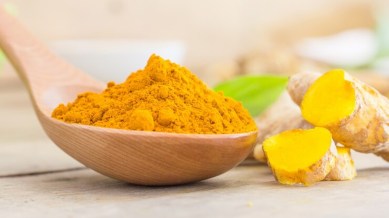📣 For more lifestyle news, click here to join our WhatsApp Channel and also follow us on Instagram
In some Indian cities, lead contamination in turmeric reaches over 200 times the food safety guidelines
Researchers collected and analysed turmeric samples from 23 major cities across the region, including Patna and Guwahati in India, between December 2020 and March 2021.

A recent study published in Science of The Total Environment has sounded an urgent alarm about dangerously high levels of lead contamination in turmeric from India, Pakistan, Nepal, and Sri Lanka.
The findings reveal that turmeric, a staple spice in South Asian cuisine and widely used in traditional medicine, harbours lead levels that far exceed regulatory limits, posing serious health threats, particularly to children.
monthly limit of free stories.
with an Express account.
Researchers collected and analysed turmeric samples from 23 major cities across the region, including Patna in India and Karachi and Peshawar in Pakistan, between December 2020 and March 2021.
The results were shocking: some samples contained lead levels exceeding 1,000 micrograms per gram (μg/g), while India’s Food Safety and Standards Authority (FSSAI) limit for lead in turmeric powder is set at just 10 μg/g. The study found that in cities like Patna and Guwahati, lead levels reached 2,274 μg/g and 127 μg/g, respectively. For perspective, the World Health Organization (WHO) has stated that no level of lead is safe for human consumption.
The practice of adulteration and its consequences
Lead contamination, according to experts, is likely due to adulteration practices that involve adding non-edible substances, such as lead chromate, to enhance turmeric’s colour and make it appear more vibrant. This practice boosts profits for unscrupulous sellers and endangers consumers, as lead is a potent neurotoxin. Dr Jayanta Thakuria, Director of Internal Medicine and Rheumatology at Yatharth Super Speciality Hospitals, emphasises that lead contamination in turmeric at levels up to 200 times the regulatory limit is “extremely hazardous” and warns of its potential to trigger widespread lead poisoning.
Consuming even small amounts of lead-contaminated turmeric can have immediate adverse effects on health, especially for young children and pregnant women, she explained. The short-term effects of lead exposure include:
- Gastrointestinal Issues: Lead poisoning can trigger symptoms such as nausea, vomiting, abdominal pain, and diarrhea, often within hours or days of ingestion.
- Fatigue and Headaches: Many may experience persistent fatigue, weakness, and headaches, often mistaken for common illnesses.
- Cognitive Impairment: Children are particularly vulnerable, as even short-term exposure to high lead levels can affect concentration, memory, and learning abilities.
Long-term health risks of chronic lead poisoning
Dr Thakuria said long-term exposure to lead, particularly through a common ingredient like turmeric, can have severe and often irreversible health consequences, including:
- Neurological Damage: Chronic exposure affects the nervous system, leading to cognitive decline, irritability, and memory loss in adults. In children, it can cause developmental delays, learning disabilities, and behavioral issues.
- Kidney Damage: Lead accumulates in the kidneys, increasing the risk of renal dysfunction and even kidney failure in severe cases.
- Cardiovascular Problems: Long-term lead exposure has been linked to hypertension and an increased risk of heart disease.
- Reproductive and Bone Health Issues: Lead toxicity impacts reproductive health, increasing risks of fertility issues and pregnancy complications. It also accumulates in bones and teeth, leading to joint pain, fractures, and lower bone density.
Can the damage be reversed?
Dr Thakuria said the effects of lead poisoning can be managed but not fully reversed, particularly for those exposed over long periods. Treatments like chelation therapy can help remove lead from the bloodstream, but damage to organs, particularly the nervous system and kidneys, is often permanent.
Dr Thakuria warns that lead contamination in turmeric is a public health crisis. Protecting consumers from lead exposure involves enforcing regulations and raising awareness about the risks associated with food adulteration. In the fight to keep food safe, early detection and regulatory enforcement can mean the difference between health and harm for millions across South Asia.
DISCLAIMER: This article is based on information from the public domain and/or the experts we spoke to. Always consult your health practitioner before starting any routine.
📣 For more lifestyle news, click here to join our WhatsApp Channel and also follow us on Instagram